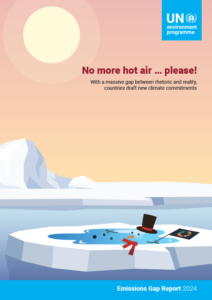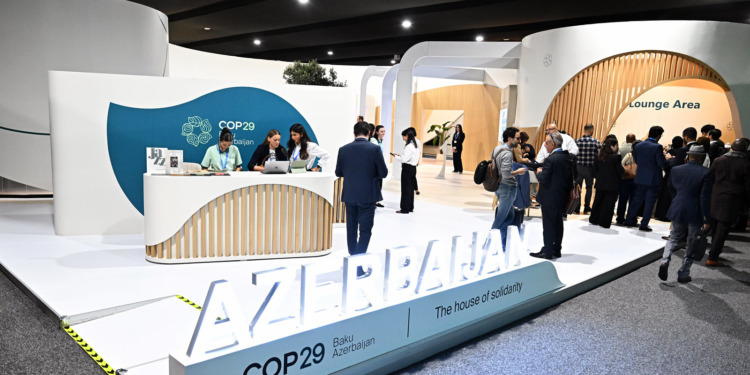COP 29 is proving to be another nail-biting climate summit, with negotiations in Baku, Azerbaijan, reaching a critical juncture. The lack of progress is alarming as the conference enters its final stretch. Over 100 items remain on the agenda, with many lacking even draft texts. This includes crucial issues like adaptation finance, loss and damage, and the global goal on adaptation.
Even the New Collective Quantified Goal (NCQG), arguably the most crucial outcome of this COP, is bogged down in complexities. This new climate finance target, meant to replace the current $100 billion goal expiring next year, is facing intense debate. While developing nations are pushing for a figure closer to $1 trillion, developed countries are reluctant to commit to such a significant increase in public funding. The latest draft text, riddled with 187 bracketed sections and spanning 33 pages, highlights the deep divisions and lack of consensus.
Adding to the urgency, influential figures, including the current UN Secretary-General António Guterres, former Secretary-General Ban Ki-moon, Mary Robinson, and Christiana Figueres, have issued a scathing open letter. They call for a “fundamental overhaul of the COP,” citing its inefficiency and lack of accountability.
One key demand is the establishment of “mechanisms to hold countries accountable for their climate targets and commitments.” This resonates deeply, as the lack of enforcement mechanisms has long been a major impediment to meaningful climate action. Without clear consequences for failing to meet pledges, the urgency of the climate crisis risks being lost in endless negotiations.
Unless some form of enforcement mechanism or sanctions are adopted, the other measures for reform listed in the signatories’ letter will have little or no impact. And yet they are important. Consider what they call for:
(1) excluding from COP presidencies host countries “who do not support the phase-out/transition away from fossil energy”;
(2) accelerating action by replacing the long, unwieldy COP meetings with “smaller, more frequent, solution-driven meetings where countries report on progress,” using the UN Gap Reports, and “are held accountable in line with the latest science”;
(3) adopting standardized definition of climate finance to “ensure robust tracking of climate finance” as the bulk “of climate financing pledges are now being disbursed as interest-bearing loans, thereby exacerbating the debt burden for climate vulnerable nations.”
(4) establishing for the climate COP its own permanent scientific advisory body on the model of the biodiversity COP (CBD COP) to ensure its decisions “integrate or action up the latest scientific evidence” —instead of merely “relying” on the Intergovernmental Panel on Climate Change (IPCC) and other related bodies, such as the Subsidiary Body for Scientific and Technological Advice (SBSTA) —which allows the COP process to ignore the IPCC advice if it so chooses;
(5) taking action on equality, justice and poverty alleviation because ecological and social change processes are intimately linked as shown in new research from the Earth Commission and from Earth4All; therefore, to ensure that these critical links are anchored in the climate negotiations and meaningful action is actually taken, a Climate-Poverty Policy Envoy must be included in the negotiations, giving voice to “vulnerable communities to advocate for these linkages.”
(6) correcting the systemic imbalance in COP representation: “The fact that there were far more fossil fuel lobbyists than official representatives from scientific institutions, Indigenous communities and vulnerable nations reflects a systemic imbalance in COP representation.”
It is not acceptable that “despite the climate COP’s new disclosure rules, a record number of 2,456 fossil fuel lobbyists were granted access at COP28,” that’s “nearly four times more than COP 27”. (Note that if fewer turned up at COP 29 —only 1,773 — the proportion of fossil fuel lobbyists remained high because the overall number of participants at COP 29 was lower than at COP 28.)
Related Articles: COP29 in Trouble: Calls for Drastic Reform | Inside COP29 | Finance and Equity Should Be the Core of COP29 Talks | Will COP29 Reach Consensus on More Funds for Climate Finance? | COP29: Agrifood Systems Transformation Holds Solutions for the Climate Crisis
What is required is “stronger transparency and disclosure rules and clear guidelines that require companies to demonstrate alignment between their climate commitments, business model and lobbying activities.”
 As the letter’s signatories noted, we are running out of time. The current rate of nature loss, from freshwater scarcity, land and soil degradation, pollination decline to ocean pollution, and accelerating climate change, is affecting the planet’s stability, putting it “at grave risk.”
As the letter’s signatories noted, we are running out of time. The current rate of nature loss, from freshwater scarcity, land and soil degradation, pollination decline to ocean pollution, and accelerating climate change, is affecting the planet’s stability, putting it “at grave risk.”
The UN Gap Report for 2024 drily notes: “Cuts of 42 percent are needed by 2030 and 57 percent by 2035 to get on track for 1.5°C.” These are huge numbers.
The current COP process is ill-equipped to deliver the necessary action. The situation in Baku underscores the need for a drastic shift in approach.
Whether the remaining days of the COP conference —it ends on Friday, November 22— can yield a breakthrough remains to be seen, but the calls for reform are growing louder and can no longer be ignored. Serious discussion about enforcement mechanisms and sanctions should be the order of the day.
Editor’s Note: The opinions expressed here by the authors are their own, not those of Impakter.com — In the Cover Photo: Behind the Scenes at the United Nations Climate Change Conference UNCCC COP29 Day 1. Baku Stadion, Baku, Azerbaijan. 11 November 2024 Cover Photo Credit: Dean Calma / IAEA (Flickr)










